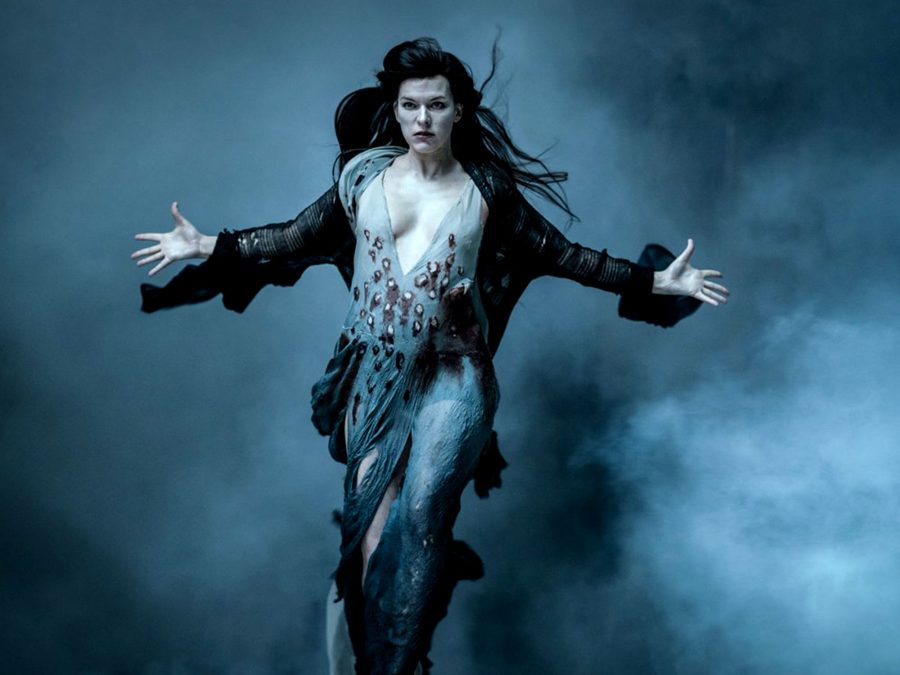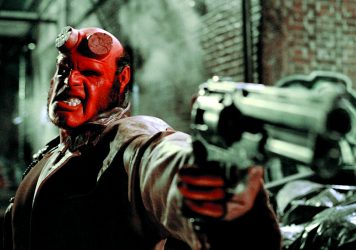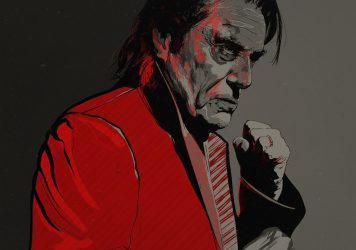Neil Marshall’s reboot finds our red-skinned hero caught on the horn’s of his own destined dilemma.
“Why did you bring me back anyway?”, Hellboy (David Harbour) asks his adoptive father Professor Trevor ‘Broom’ Bruttenholm (Ian McShane), who runs the Bureau for Paranormal Research and Defense. “Don’t tell me it’s ’cause you missed me.”
The truth is, it has always been Hellboy’s destiny to come back, ever since Guillermo del Toro followed Hellboy with Hellboy II: The Golden Army, and ended that sequel with a massive cliffhanger wherein the red-skinned hulk finally turned his back on humanity, preferring to side with the marginalised creatures of the shadows for whom he felt a greater affinity.
Del Toro had intended to make a grand trilogy closer which he would freely adapt himself from the comics of Mike Mignola. But when the studio assigned the writing to Steve Cosby (helped by Mignola) instead, del Toro lost interest, taking Ron Perlman – who had made the role of Hellboy so iconic in the first two films – with him away from the project.
Now what started life as a second sequel has become a reboot instead, directed by Neil Marshall and starring David Harbour as the demon who would be king. The film is still concerned with the same themes and the same moral cruces – namely, Hellboy’s attempts to find not only his place in a world that regards him as a monstrous freak and sets him against his own kind, but also his path in a life that seems pre-destined for evil.
But it takes us back to a younger Hellboy, before the topknot, before Broom’s death, even before meeting series regulars Liz Sherman, Abe Sapien and Johann Krauss. There’s a flashback to the primal scene which opened the 2004 Hellboy – Rasputin’s magical summoning of the apocalyptic antihero towards the end of World War Two – but here, as though acknowledging that this scene has already been shot once before, it is presented as self-consciously cinematic spectacle (with Kristina Klebe’s Leni Riefenstahl filming the ritual, and an SS officer sporting old-style 3D glasses to watch).
The sequence also deviates from its previous telling by briefly introducing a new character, the intrepid Lobster Johnson (Thomas Haden Church), who dispatches Nazi soldiers with gory abandon. Johnson does not return in the present-day scenes (unless you hang around for the post-credits sting), but he does embody the spirit of the film’s ass-kicking, blood-letting irreverence.

Sent to England to help the conservative Osiris Club hunt a trio of escaped giants, Hellboy finds himself unsure whether to fuck, marry or kill the pestilential ‘Blood Queen’ Nimue (Milla Jovovich), once dismembered by none other than King Arthur, and now being reconstituted by the vengeance-seeking porcine fairy Gruagach to bring Hell to Earth.
Helped by Alice Monaghan (Sasha Lane), a council-estate psychic whom he had rescued as a baby from Gruagach, and forced to work with Ben Daimio (Daniel Dae Kim), a battle-scarred soldier with a deep mistrust of monsters, Hellboy must face a vampiric luchador (Mario de la Rosa), giants, the witch Baba Yaga (Troy James) – who, like the baby-devouring Pale Man in del Toro’s Pan Labyrinth, tempts our protagonist with a feast – zombies, a gigantic talking boar and grotesquely Lovecraftian interdimensional abominations. Most of all, though, he must face himself, caught on the horn’s of his own destined dilemma.
Repeatedly undercutting its own visual horror with coarse, sweary humour, Hellboy is a knowingly silly affair, with a wise-cracking adolescent at its centre who cannot quite decide whether he is meant to be the film’s superhero or supervillain. That ethical decision is in part governed by a conflicting range of paternal influences (whether his own already confused bloodline, or the adoptive Broom). As such, the film plays upon the multi-faceted forces of patriarchy – and resurgent Nazism – in our own postmodern age.
There are lessons aplenty here: make your own future; embrace your inner difference; best avoid eating children; understand that the supposed bad guys sometimes really are the bad guys, and that the good guys can still be good even if they happily shoot others in the face (just so long as they do not spear you in the back); know that every day you do not end the world is a good day.
If this all sounds like a bewilderingly mixed message, that is because Hellboy makes a virtue of its own messiness, exulting in its protagonist’s confounded status as alpha asshole and saviour of humanity, and unleashing him on a world that is all at once recognisably our own banal place of residence, yet full of ancient entities and impossible incidents.
Not all the film’s imperfections seem quite so intrinsic to its topsy-turvy narrative fabric. Way too many lines of dialogue, for example, appear to be there just ‘for the trailer’, perfunctorily recapitulating the absurdities that we have already seen unfolding – and there is little sense of peril in a universe where no-one, human or otherwise, ever really, irrevocably dies.
This is why, for all the pugnacious pandemonium and SFX biffo, really the film comes down to a moral choice. The heady struggle between good and evil, fought by but also embodied within Hellboy himself, can carry on forever (in a story whose key events go back millennia). “Make sure she doesn’t come back for the sequel,” Alice tells Hellboy of Nimue. Perhaps she won’t, but there will always be other demons, whether physical or personal, for Hellboy to fight, and while this film is obsessed with the – or at least an – end that is coming, it also leaves multiple doors open for one or other kind of cinematic hereafter.
Published 11 Apr 2019
No del Toro, but plenty of Marshall.
Sweary, silly, schlocky, satisfyingly surreal.
As Ben Daimio puts it, “Hellboy does not add up”.

By Luís Azevedo
To celebrate the release of The Shape of Water, we enter the fantastical world of the inimitable Mexican maestro.

Guillermo del Toro’s cigar-chewing monster remains one of cinema’s most compelling anti-heroes.

The veteran screen star talks Jawbone, bad superhero movies and how ‘tough guy’ acting has evolved.